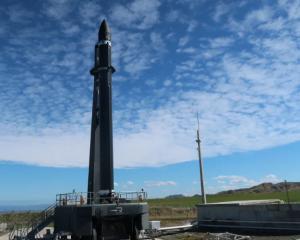
He met Afghan President Hamid Karzai and General Stanley McChrystal, International Security Assistance Force (ISAF) commander. On arrival in Kabul the Prime Minister was choppered off for a meeting with New Zealand Special Air Services members and on Sunday went to Bamiyan to meet troops in the Provincial Reconstruction Team (PRT).
Mr Key said he had to visit.
"This is a dangerous place and I am asking New Zealanders to come here and represent New Zealand but, ultimately in doing that, to put their own lives on the line and I am not prepared to send people to a destination I am not prepared to come myself."
Speaking outside the British Embassy in Kabul, where he stayed while in the capital, Mr Key said the intense security around him made him feel safe but; "in the end everybody's at risk". The New Zealand delegation wore body armour and helmets while travelling in armoured vehicles accompanied by armed troops and Mr Key's vehicle moved in a motorcade.
Mr Key said another motivation was to come and make his own assessment of the work of the 70 plus SAS team due to leave in March and the 140 troops in Bamiyan whose rotation ends in September. He is considering extending both.
The trip was planned months ago but was kept secret.
"The reason for that is just around my personal security and actually the security of the people that travel with me, the chief of the defence force (Jerry Mateparae), even you as journalists would be at greater risk if people knew that I was here because we would be a juicy target. And on that basis that is the standard that's applied to any sort of dignitary that comes here."
Former prime minister Helen Clark visited under a shroud of secrecy and more recently United States President Barack Obama did the same.
Mr Key said President Karzai was grateful for New Zealand's contribution to ISAF.
"He was very engaging and extremely appreciative of the efforts by New Zealand to rebuild Afghanistan."
The President is a controversial figure with a recent Pentagon report saying he lacked the will to address corruption in the country. That report came hot on the heels of incendiary remarks President Karzai made that the western countries were to blame for election fraud and that if foreign interference continued the Taleban would become a legitimate resistance, one that he might join.
The President is increasingly unpopular and is organising a peace jirga to get tribal leaders together to muster support.
"From what we can see through his peace summit he's clearly trying to reach out and achieve a popular mandate for his leadership," Mr Key said.
"I think it's very important that the people of Afghanistan can believe in their government and to do that they have to be sure it's free of corruption and has their best interests at heart, and in this environment leaders have to constantly demonstrate that they hold those principles dearly."
Asked what the chances were of the war being won almost nine years after the US-led invasion of Afghanistan, Mr Key said progress was being made.
"I think it's too early to say we are winning. I think there's been a definite change of emphasis under General McChrystal. If you go back three-four-five years ago it really was a war that was recorded by the body bags and the count of the number of Taleban that were being killed. And that was seen as the milestones of success.
"That's completely changed and now it's very much about the hearts and minds of people being won and whether Afghans themselves want to stand up and say look we want to run our country and we don't want the Taleban running things."
Mr Key said the world could not ignore the threat of Al Qaeda and letting Afghanistan fail would give them back a base to plan international terrorist acts and reinstall a Taleban regime.
"The enemy is al Qaeda really. The Taleban is a domestic focus, they may be a very torrid and horrid regime but in terms of the real enemy that's al Qaeda and it's al Qaeda's capability to plot the equivalent of 9/11 or the London bombings or the Bali bombings.
"The intelligence we have is the work that we are doing here in Afghanistan has stopped them from being allowed to use Afghanistan to plot that sort of global terrorist effort."
Mr Key said the importance of New Zealand's involvement was "huge" and important to global solidarity.
"Individually no one country can stabilise Afghanistan but I think 46 on a combined basis can. Secondly the New Zealanders are just very good at what they do, even if their numbers are not as big as the Americans and the Brits and others they have played a hugely successful and a tremendous role here. Everywhere we go from General McChrystal down they've been complimented on what they do."











